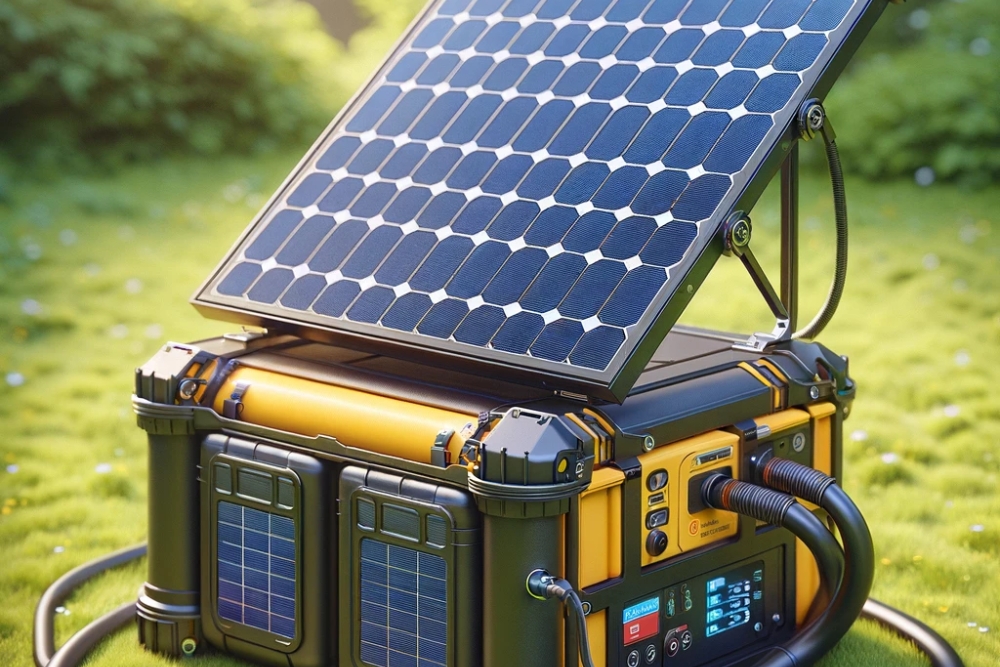Why a Portable 5kW Solar Generator Is the Ideal Home Power Backup in 2025
Portable 5kW solar generators are becoming a realistic home backup option in 2025, offering clean power, manageable installation, and the ability to run key appliances during outages. For many households, they sit between small battery packs and large fixed generators, balancing mobility, capacity, and long‑term running costs in a practical way.

Growing energy uncertainty is leading many households to rethink how they keep lights, refrigerators, and communications devices powered when the grid goes down. A portable 5kW solar generator combines a high‑capacity battery, inverter, and solar charging into a single, movable system that can support essential home loads with no fuel deliveries and far less noise and maintenance than conventional generators.
Why homeowners are switching to portable solar generators
Many homeowners are turning to portable solar generators because they avoid the recurring costs and logistics of gasoline, diesel, or propane. Once installed, solar panels harvest energy from the sun at no fuel cost, while the battery stores that energy for use at night or during an outage. For people living in areas with frequent storms, heatwaves, or aging grid infrastructure, this approach can provide a sense of resilience without the fumes, noise, and fuel storage issues of combustion generators.
Portability is another major motivator. Unlike a permanently installed standby generator, a 5kW‑class solar generator can be moved between locations, repositioned for better sun exposure, or taken to a different property if you move. Renters and people in apartments or townhouses often cannot install fixed systems easily, so a portable unit paired with balcony, yard, or portable ground‑mount solar panels can be an attractive alternative that avoids complex permitting in many regions.
Benefits of a 5kW solar generator for home use
A 5kW rating refers to the maximum continuous power the inverter can deliver, not the total energy stored. In practical terms, a 5kW portable solar generator can usually run a refrigerator, lights, Wi‑Fi, laptops, phone chargers, and a few additional appliances such as a small air conditioner or microwave, depending on their combined power draw. This makes it well‑suited for maintaining comfort and safety during short to medium‑length outages rather than powering an entire large home exactly as usual.
Because these systems integrate battery storage, they provide instant, quiet backup power with no warm‑up time. Many units support automatic transfer switches or smart‑panel integrations so that selected home circuits switch to battery power when the grid fails. Beyond emergencies, the same system can be used for off‑grid cabins, RV trips, garden offices, or outdoor events, improving the overall value by serving multiple roles instead of sitting idle most of the time.
Costs and value considerations in 2025
When evaluating a portable 5kW solar generator for home backup, it helps to look at both upfront costs and long‑term value. Pricing depends on battery capacity (measured in kWh), inverter power rating, the number and wattage of solar panels, and extra features such as 240V support, app monitoring, or modular expansion batteries. While the sticker price can seem high compared with small fuel generators, the long‑term picture changes once fuel, oil changes, and maintenance for combustion engines are factored in.
To give a sense of real‑world pricing, the table below shows approximate 2025 retail costs for several well‑known portable solar power stations and bundles that can approach or match 5kW home‑backup roles when configured with suitable solar arrays and batteries.
| Product/Service | Provider | Cost Estimation |
|---|---|---|
| DELTA Pro portable power station + 4×400W solar panels | EcoFlow | Around USD 5,500–6,500 depending on region and promotions |
| AC500 modular power station + 2×B300S batteries + 6×420W panels | Bluetti | Around USD 7,000–8,500 based on configuration and retailer |
| Explorer 3000 Pro power station + 4×200W solar panels | Jackery | Around USD 3,500–4,500 depending on panel bundle and sales |
Prices, rates, or cost estimates mentioned in this article are based on the latest available information but may change over time. Independent research is advised before making financial decisions.
Looking at value rather than just headline prices, several factors stand out. First, solar energy itself is free once the panels are installed, so operating costs per kWh can be much lower than running a gasoline generator over several years, especially in sunny regions. Second, lithium‑ion batteries used in modern solar generators typically support thousands of charge cycles. Spread over their lifetime, the cost per cycle can become competitive with repeatedly buying fuel, particularly where fuel prices are high or volatile.
It is also worth considering non‑financial benefits that do not appear directly in cost comparisons. Quiet operation can make a big difference in dense neighborhoods, where the noise of combustion generators may be unwelcome during nighttime outages. The absence of exhaust fumes is important for air quality and safety, as portable fuel generators must be kept well away from enclosed spaces to avoid carbon monoxide risks. For households prioritizing lower emissions or energy independence, these intangible advantages can carry significant weight.
Choosing the right 5kW‑class setup involves balancing capacity, portability, and budget. Larger battery banks and more solar panels allow longer runtimes and faster recharging but increase weight and cost. Some users prefer a modular system that starts with one battery and a modest solar array, then expands if outages become more frequent or energy needs grow. Paying attention to warranty length, cycle life ratings, customer support quality, and compatibility with home wiring options can help ensure that the system remains a reliable asset throughout its service life.
In 2025, portable 5kW solar generators occupy a middle ground between small, personal backup devices and fully engineered rooftop solar plus stationary storage systems. For many households, that balance of flexibility, moderate capacity, and fuel‑free operation makes them an appealing option for maintaining essential comfort and connectivity when the grid is unavailable, while also delivering year‑round utility for off‑grid and outdoor use.




